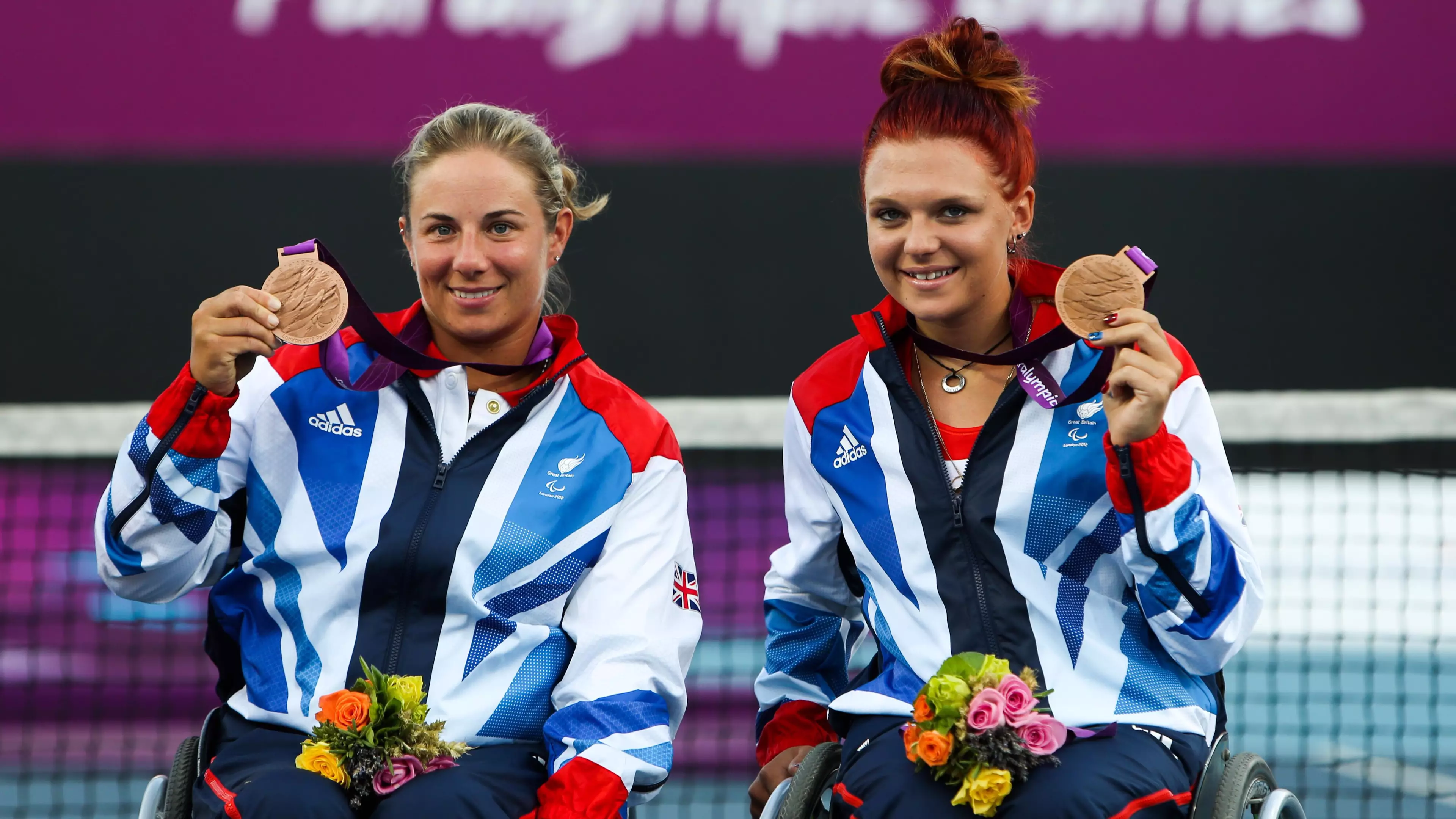
In 2001 Lucy Shuker was involved in a motorcycle accident that left her paralysed from the T4 vertebra and below. She turned things around to become one of the top women's wheelchair tennis players.
Many sportsmen and women have to face adversity in their lives before they manage to reach the upper echelons of their sport.
For para-athletes that often means going through an unimaginable change in their lives as was the case for Lucy Shuker some 16 years ago.
Advert
We spoke to Lucy about wheelchair tennis, starting with the facilities at the National Tennis Centre in Roehampton where she had been training ahead of Wimbledon earlier this year:
"The NTC is one of the best performance centres I've been to. The courts are fantastic, you've got indoor, hard, outdoor, clay courts and grass courts.
"The knowledge that is there with the physios, the sports science it is amongst the best in the world.
"To be able to play there is an honour and it's great to have that support and to help us achieve to be the best that we can be at our sport."
Advert
But what about the worst facilities she's played on?
"Worst courts were at my first World Team Cup out in Holland in a place called Groningen.
"They were clay courts and they were so unlevel on the base line that you wouldn't be able to push because your wheels would be off the ground which obviously isn't ideal at all."
Obviously Lucy's story of getting into sport is different to how most people find their way into it and a chance meeting with a British legend of the sport changed everything:
Advert
"I played tennis at a young age with my brother and at school for fun but I played Badminton at a high level before my accident.
"Then after my accident, whilst in hospital, I met Pete Norfolk who was then the world's number one in the quad division. He has his own wheelchair company and having had my accident I was fitted for a chair and we got talking.
"He found out I played Badminton so, the same as what I'd do now is, he suggested I try wheelchair tennis.
"He lent me one of his old chairs to play, because without one you can't play or try the sport- they range from £1000 to £5000. I tried it and enjoyed it and it just snowballed.
Advert
"When I came out of hospital friends, family played with me to help overcome and get used to doing something and be active again. And then about a year after I played my first tournament.
"The first meeting with Pete was completely by chance."
The three time runner-up in the women's wheelchair doubles at Wimbledon thinks that the sport is becoming more accessible but admits that a chair is the number one difficulty to starting:
"I'd say it's as accessible as most other sports nowadays. There's a lot of wheelchair training camps and there's lots of grassroots initiatives.
Advert
"The LTA have a good wheelchair tennis programme, taking you from beginners and juniors to the elite level.
"The hardest thing is the chair, you know getting a sports chair to be able to play, getting the funds but even then nowadays there are charities to help you.
"Finally there's finding someone to play with. I was lucky that friends and family were willing to play with me early on."
Lucy has represented Team GB at the Paralympics three times, starting in Beijing in 2008, and won bronze medals at London 2012 and Rio last summer.
So just what was it like representing her country?
"It's an honour and people dream of doing it.
"Beijing was my first games and it gave me so much experience and knowledge for London four years later.
"When it's your first games you're so excited to go and see other sports. But at London I was concentrating on doing as well as I could.
"And the London games smashed it, they raised the bar for Paralympics. They had sold out stadiums, when we had our bronze medal match people were queueing to get in.
"There were over 5000 people and when the majority are cheering for you it's great."
And what about Rio where Team GB got their hands on six medals in the tennis?
"Rio have their own special place and it was great with the whole Team GB achieving more medals than we did at London, which was unheard of. It's great to be part of that and add to the medal tally.
"You're always with your team so living amongst the tennis guys but you're in the block of GB guys and you hear about peoples medals and world records and the buzz is there and everyone wants to achieve.
"Going in we knew the team was playing well and the courts suited the players. The tennis association sorted us out a great camp so we went in there really quite spoilt from a hotel perspective. Training wise we worked really hard.
"When people were beating seeds we started getting excited but we had to remain calm and work hard.
"In the end we just smashed it out there, what can you say? Six medals is phenomenal."
Quite phenomenal indeed, but maybe not as phenomenal as Lucy's story!
Featured Image Credit: